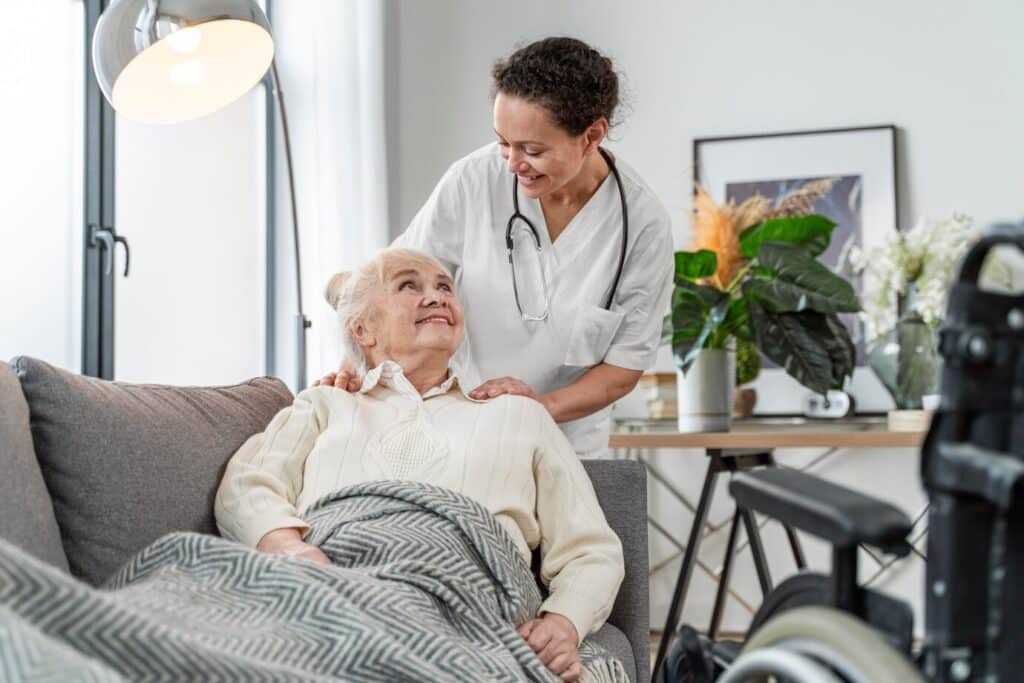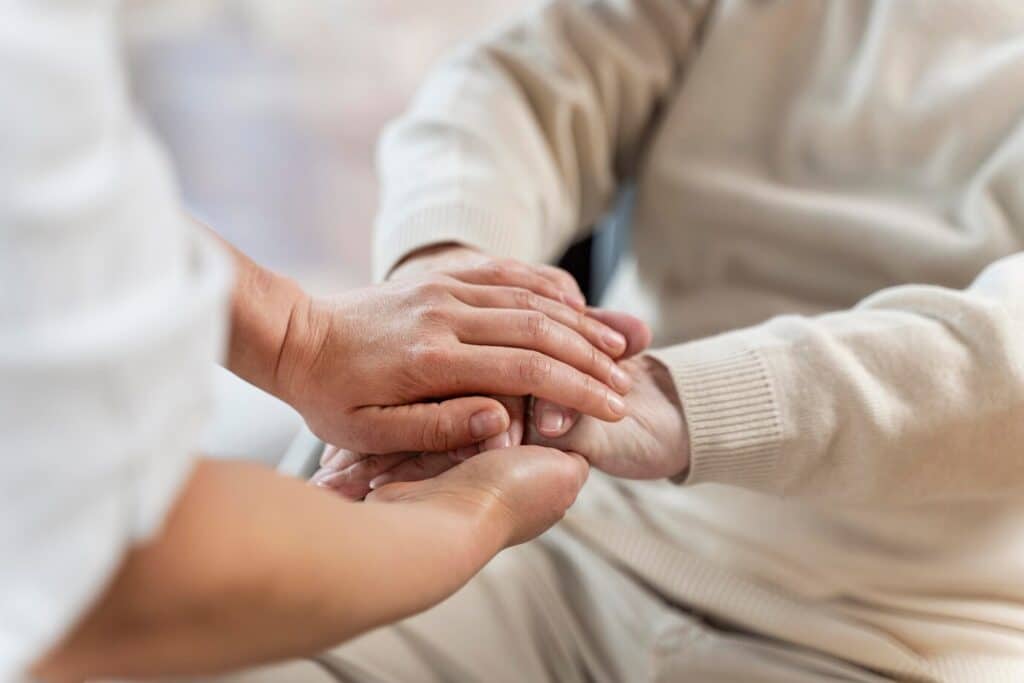How Cultural Activities Improve Senior Mental Health
Cultural and recreational activities offer more than entertainment—they are powerful tools to enhance senior mental health. Westmont at San Miguel Ranch focuses on creating an environment where seniors thrive emotionally and cognitively. Programs designed with purpose and compassion help build social connections, reduce isolation, and foster overall emotional well-being.
Participating in cultural and recreational activities is also one of the most effective strategies for improving mental health in the elderly. With guided support and enriching experiences, these activities empower seniors to live with joy, meaning, and vitality.
The Role of Daily Activities in Enhancing Mental Health
Daily structured activities are foundational to promoting senior mental health. As seniors age, consistent engagement in cognitive and social activities helps combat isolation and enhances emotional stability. Whether through group games, fitness classes, or artistic endeavors, these daily routines offer the cognitive stimulation and social contact essential for mental well-being.
This is especially critical in addressing common mental disorders in elderly populations, such as depression and anxiety. Studies show loneliness can accelerate cognitive decline, whereas social engagement can delay or prevent such deterioration. Simple practices like creative arts and crafts promote brain health and self-expression.
Westmont’s Holistic Approach to Engaging Residents
Westmont at San Miguel Ranch believes in more than just filling calendars with events. Their approach to senior mental health is holistic, ensuring every resident finds a place to belong and activities that resonate personally.
- Custom programs tailored to each resident’s interests
- Social events are designed to reduce feelings of isolation
- Expressive art and music sessions to promote emotional release
- Cultural celebrations that foster inclusion
- Regular feedback from residents keeps activities meaningful
This well-rounded focus helps residents learn how to deal with mental illness in the elderly. loved ones by creating an uplifting and supportive community. Emphasis on mental agility strengthens cognitive functions and fosters resilience.

Therapeutic Benefits of Diverse Activities
Therapeutic engagement is one of the best ways to support Senior Mental Health. Art and music therapy offer emotional relief, spark joy, and foster memory recall. These experiences are not only enriching but also deeply restorative.
For example, music can awaken positive memories and improve mood, especially in individuals dealing with four common mental illnesses in the elderly, such as dementia, anxiety, and depression. Meanwhile, art therapy enhances self-esteem and enables emotional processing.
Even those asking how to improve mental health in the elderly at home can replicate these strategies. Shared creative activities at home or in care settings promote trust, open dialogue, and emotional healing.
Studies also support the role of music and film in strengthening emotional well-being, particularly in memory care environments.
Scientific Evidence Supporting Activity Participation
Scientific research overwhelmingly supports the link between recreational activities and senior mental health. Numerous studies highlight how daily engagement in structured activities can:
- Delay cognitive decline and improve memory
- Reduce anxiety, depression, and social withdrawal
- Increase overall life satisfaction and joy
Data further shows that when older adults regularly participate in social and cultural activities, they report better health outcomes and emotional resilience. Group activities also make it easier for caregivers to recognize the four common mental illnesses in the elderly, such as depression, anxiety, Alzheimer’s disease, and bipolar disorder.
Participating in group events builds community and belonging, key protective factors against common mental disorders in elderly populations.
The Future of Cultural and Recreational Engagement
Cultural and recreational programming is evolving rapidly in senior living. With growing awareness about senior mental health, communities are implementing more tailored experiences that reflect residents’ identities, interests, and values. Future trends are likely to include:
- Virtual reality travel and immersive cultural experiences
- Intergenerational art projects and community partnerships
- Culturally inclusive music, dance, and storytelling sessions
- Greater use of technology to connect residents with the outside world
These initiatives align perfectly with efforts to educate people on how to improve mental health in the elderly, not just within communities but also in home care settings. Promoting autonomy and honoring personal history are powerful strategies in this regard.
Westmont already embraces cultural celebrations that reflect diverse backgrounds, ensuring every resident feels represented and valued.

Commitment to Excellence in Assisted Living Activities
True excellence in assisted living means going beyond standard activities. It involves crafting meaningful, therapeutic, and uplifting experiences—a cornerstone of any program focused on senior mental health.
At Westmont, that commitment is reflected in:
- Personalized engagement based on resident preferences
- Evidence-based programming focused on emotional well-being
- Adaptive activities for those with physical or cognitive challenges
- Staff trained in recognizing and supporting mental health needs
These proactive measures support not only how to deal with mental illness in the elderly? Communities encourage family members to feel confident in their loved one’s care.
Enriching the Golden Years with Purposeful Living
In conclusion, cultural and recreational activities are more than just a way to pass the time—they’re a pathway to vibrant, connected living. As seniors embrace these experiences, they cultivate mental strength, emotional balance, and lasting relationships.
With increasing awareness about the four common mental illnesses in the elderly, we now know that early, consistent engagement in group or individualized activities can dramatically influence well-being. From exploring music to participating in community celebrations, seniors find healing, joy, and meaning.
At Westmont at San Miguel Ranch, you’ll discover an environment dedicated to uplifting every resident’s mental, emotional, and social health. Are you curious about how to deal with mental illness in the elderly? Or seeking real-life solutions for common mental disorders in elderly loved ones, our approach offers a compassionate and evidence-based path forward.
For more expert information and support, explore resources from the National Institute of Mental Health, Mental Health America, or Verywell Health’s mental health guide.
If you want to learn more about our community, please call us at 619-271-4385 or schedule a tour to explore all we offer!
How Do The Costs Of Moving Into A Quality Senior Care Community Compare With The Costs Of Staying At Home?Compare The Costs of Senior Living vs Staying at Home
Frequently Asked Questions
What is the most common mental illness in the elderly?
The most common mental illness in the elderly is depression. It often goes undiagnosed because symptoms can be mistaken for signs of aging, such as fatigue or memory issues. Depression in older adults can stem from isolation, chronic illness, or loss of independence. With proper support and treatment, including therapy and sometimes medication, most seniors see significant improvement in their mental well-being.
How to deal with mental illness in the elderly?
Dealing with mental illness in the elderly involves a combination of compassion, early intervention, and consistent support. It’s essential to monitor for changes in mood, behavior, and daily functioning, and to consult a healthcare professional for an accurate diagnosis. Treatment may include therapy, medication, social engagement, and lifestyle changes like exercise or improved nutrition. Family involvement and routine check-ins also play a key role in long-term mental health management.
What is the most common mood disorder in the elderly?
Major depressive disorder is the most common mood disorder affecting elderly individuals. It can present differently in seniors, often appearing as physical complaints, irritability, or withdrawal rather than sadness. The risk increases with factors like chronic illness, grief, or lack of social interaction. Early recognition and treatment are essential to improving quality of life and preventing further health decline.
What is the #1 most diagnosed mental disorder?
Anxiety disorders are currently the most diagnosed mental disorders across all age groups. These include generalized anxiety disorder, panic disorder, and phobias, and can significantly interfere with daily life. In older adults, anxiety is often underreported due to stigma or lack of awareness. Proper diagnosis followed by therapy, medication, or relaxation techniques can help manage symptoms effectively.








